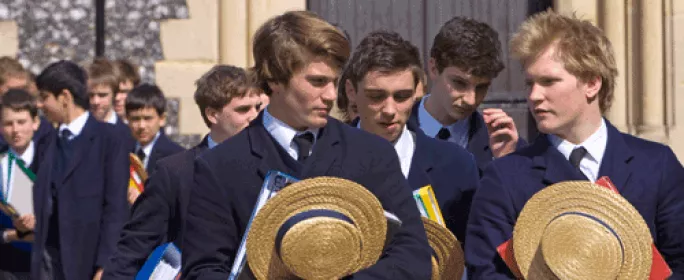Private school fears over Ofsted-style inspections
The heads of the country’s leading private schools are to go head-to-head with the government over plans to impose Ofsted-style inspections on independent schools.
TES understands that headteachers fear the proposed move could significantly reduce their independence. There are also concerns that bringing in Ofsted-style inspections could hugely increase paperwork and bureaucracy in the independent sector, and compel schools to focus on national benchmarks and tests, such as Year 6 Sats exams.
Currently, the 1,257 members of the Independent Schools Council are inspected by the Independent Schools Inspectorate, but the focus is on peer-review and schools are not given overall headline gradings. Instead, ISI assigns ratings to all elements of school life, such as the quality of academic achievement and pupils’ personal development.
It is understood that under government proposals, private schools could be given new overall ratings to match those in state schools, ranging from “outstanding” to “inadequate” to make it easier for parents to compare schools. This system is already used to inspect private schools that do not belong to the ISC.
In emails to members seen by TES, William Richardson, general secretary of the Headmasters’ and Headmistresses’ Conference, which represents leading private schools, wrote: “Overall, we are concerned that there is, indeed, an attempt to impose on schools inspected by ISI aspects of the Ofsted inspection framework for maintained schools (and, perhaps, in time, the complete framework).
“Our overall aim is to slow down and then impede any policy moves designed to impose Ofsted methods, procedures and personnel on our schools.”
The email adds that Christine Ryan, chief inspector at the ISI, told an audience of heads that the independence of her inspectorate was “under significant and immediate threat.”
The plans have emerged just weeks after education secretary Michael Gove told a conference of private school headteachers that making Ofsted inspect independent schools would send a “very powerful signal” to parents that all schools were being vetted “without fear or favour”.
The moves will also potentially inflame the relationship between the chief inspector, Sir Michael Wilshaw, and independent school heads, who he has attacked for their lack of contribution to the state sector.
The proposals came as the government launched a consultation into its changes to the Independent School Standards Regulations, which give the government greater powers to shut independent schools - including private schools, free schools and academies - if they are found to have links to religious extremism.
It is understood that the eight associations making up the Independent Schools Council are to write a joint letter to schools minister Lord Nash, asking for clarity on the government’s plans and calling for a meeting.
The associations are also believed to be seeking legal advice on the move and whether it conflicts with human rights law.
Richard Cairns, headmaster of Brighton College, told TES he could understand why the government wanted a similar inspection regime for both sectors, but expressed concerns over the “massive paper trail” required under the Ofsted system.
“ISI inspection is more focused on outcomes relative to the quality of pupils you’re getting, but under Ofsted there is a lot of box-ticking, everyone is nervous of a system that is overly bureaucratic.
“People would be more comfortable if the government was making Ofsted a bit more like the ISI.”
Mr Cairns said at least 99 per cent of independent sector headteachers would be opposed to the introduction of a potentially more cumbersome inspection regime. It seemed “odd” that a government would impose an already “flawed” system on the independent sector, he added.
A Department for Education spokesman said it had recently consulted on a “range of reforms to tighten up regulation in the independent school sector and to ensure independent schools are backed by robust inspections.”
“This included arrangements for the approval of independent inspectorates. We expect to announce the outcome of that consultation in the near future,” he added.
A spokesman for the ISI said it was involved in “ongoing conversations with the Department for Education regarding the proposed changes to the way in which independent inspectorates undertake their work.”
He added that the proposed changes would alter the way in which ISI works “in a number of ways”.
“At this stage we believe these would not lead to greater rigour or the most effective inspection of compliance in the schools which should be at the heart of any proposed changes.” he said.
Keep reading for just £1 per month
You've reached your limit of free articles this month. Subscribe for £1 per month for three months and get:
- Unlimited access to all Tes magazine content
- Exclusive subscriber-only stories
- Award-winning email newsletters




